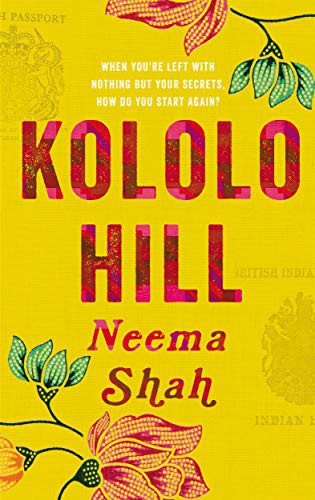Stephanie Jane recenzis Kololo Hill de Neema Shah
Superb historical fiction
5 steloj
Kololo Hill focuses on Idi Amin's expulsion of Asian families from Uganda in the early 1970s. It's set around the same time as The First Woman by Jennifer Nansubuga Makumba and shows a very different side of Ugandan life. We see how an Indian family have their lives turned upside-down by Amin's decree. He does not consider them to be Ugandans even though Jaya and her husband, Motichand, have lived and worked in the country for decades. Not even their eldest son, Pran, born there and in possession of a Ugandan passport, escapes the ruling. Shah tells the family's story through three characters: elderly Jaya, Jaya's daughter-in-law, Asha, and Jaya's younger son, Vijay. I was particularly fascinated by the relationship between Jaya and Asha which illustrates not only a wide generation gap but also shows how far Ugandan Indians have diverged from their parents' culture. Jaya has always followed a …
Kololo Hill focuses on Idi Amin's expulsion of Asian families from Uganda in the early 1970s. It's set around the same time as The First Woman by Jennifer Nansubuga Makumba and shows a very different side of Ugandan life. We see how an Indian family have their lives turned upside-down by Amin's decree. He does not consider them to be Ugandans even though Jaya and her husband, Motichand, have lived and worked in the country for decades. Not even their eldest son, Pran, born there and in possession of a Ugandan passport, escapes the ruling. Shah tells the family's story through three characters: elderly Jaya, Jaya's daughter-in-law, Asha, and Jaya's younger son, Vijay. I was particularly fascinated by the relationship between Jaya and Asha which illustrates not only a wide generation gap but also shows how far Ugandan Indians have diverged from their parents' culture. Jaya has always followed a traditional way of life for Indian women of her class and caste, keeping herself in her husband's shadow, whereas as Asha, brought up in Uganda culture, expects the right to speak and that her opinions should be acknowledged. Neither woman is equipped for the situation in which they find themselves, but I loved how Shah plays them off each other as they struggle through.
Asha's husband, Pran, provides much of the story's drive which is a little strange because, as readers, we don't get to hear his voice directly. As he and Asha are newly married, she often doesn't understand this secretive man either so their lack of connection often causes more problems. Kololo Hill is as much about this family's interpersonal relationships as it is about the outside situation in Uganda and I felt the almost claustrophobic sense of them being trapped together worked very well to add atmosphere to the story. It's even more effective once some of the family arrive in England, others having been lost along the way.
I remember seeing old newsreel footage of dozens of expelled Ugandans arriving at one of the London airports, obviously bewildered and certainly not dressed warmly enough for the weather. Shah managed to put me right into the middle of that moment, and into the months that follow as these refugees attempt to rebuild their lives from scratch having had to leave practically all their possessions behind. Kololo Hill really brought home to me just how traumatic such an upheaval was, and still is for the people going through similar experiences today.

